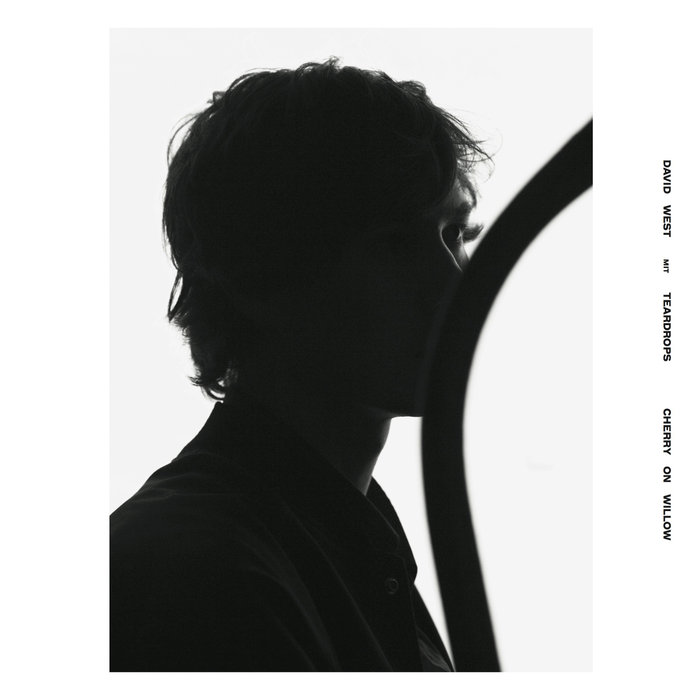A mere fourteen months after his debut Peace or Love, Australian experiment pop artist David West brings out his second collection of tracks. He’s a busy man, though. In between, West released an album from one of his other projects Rat Columns. This time around he’s drafted in a few of his mates – Louis Hooper (Rat Columns), Raven Mahon (Grass Widow), Griffin Harrison, Bob Jones (Eaters) and Mikey Young.
Cherry on Willow is immediately a more focused effort than Peace or Love. Melodies are more straightforward but no less rewarding. Musically it hasn’t moved a great deal from his debut. The psychedelia and disco influences are still evident but more confined. Vocally, West brings to mind a more hesitant Bobby Gillespie of Primal Scream, with tones and inflections that would be at home on a shoegaze album.
Throughout the album, each song wrong-foots you, turning on itself or adding addition layers of instrumentation. You’re never far from a slight change in direction, a detour into another sub-genre.
Opener, ‘Morning Rain’ matches psychedelic vocals, scuzzy guitar to a driving FM-rock rhythm section. There’s a vague exuberant Vampire Weekend approach bringing shafts of playful guitar here and there.
The title track doesn’t veer much away from the light-footedness of Morning Rain, the bass propelling the track along.
The brief but wonderful ‘Joy’ is a summery guitar dappled delight complete with hand claps. This mood informs most of the other tracks – it’s an album that would sound great in Summer.
‘Time to Forget’ is the one instance on the album where the music becomes murky enough to complement the desolate vocals, its sparse Cure-style keyboard pad descending to a darker place.
‘Red for the Blues’ is a languid and hazy piece with a retro sound that harks back to 60s girl groups in places. An ephemeral switch of atmosphere on this one takes us to a distinctly druggy, flanged middle 8 before returning to the main theme.
The record really finishes strongly – the final three tracks are uninterrupted quality. Proceedings take an unexpected turn on ‘Soft’ wherein we’re treated to slivers of disco guitar, underpinned by shimmering keyboards and lively drums. It’s a dance track with several moments of disco, eighties bassline squelches and an intro of comforting looped-house accessibility. A pared back breakdown lets a few of the elements shine and the effect is magical – a candidate for the best song on the album.
First single ‘Swan’s Beat’ comes on like DJ Shadow splicing up White Stripes, Joy Division, funk and dub riffs. As with most of the tracks on Cherry on Willow, seemingly ill-fitting parts soon make sense with repeated listens. On Swan’s… you’re left to assemble the main musical motif yourself. But when it clicks it’s a revelation.
By the record’s close we are back to balmy sounds, harmonics and sprightly percussion on ‘Call Me Sometime’. It’s a pure joy. It leaves a sweet memory and you can’t wait to play it again; like much of the album – which is as good a recommendation as you can get.
A charming and engaging album.



![Video Of The Week #53: Elle Mary & The Bad Men - Behave [PREMIERE] 32 Video Of The Week #53: Elle Mary & The Bad Men - Behave [PREMIERE]](https://www.godisinthetvzine.co.uk/wp-content/uploads/2017/10/IMG_0150-150x150.jpg)
